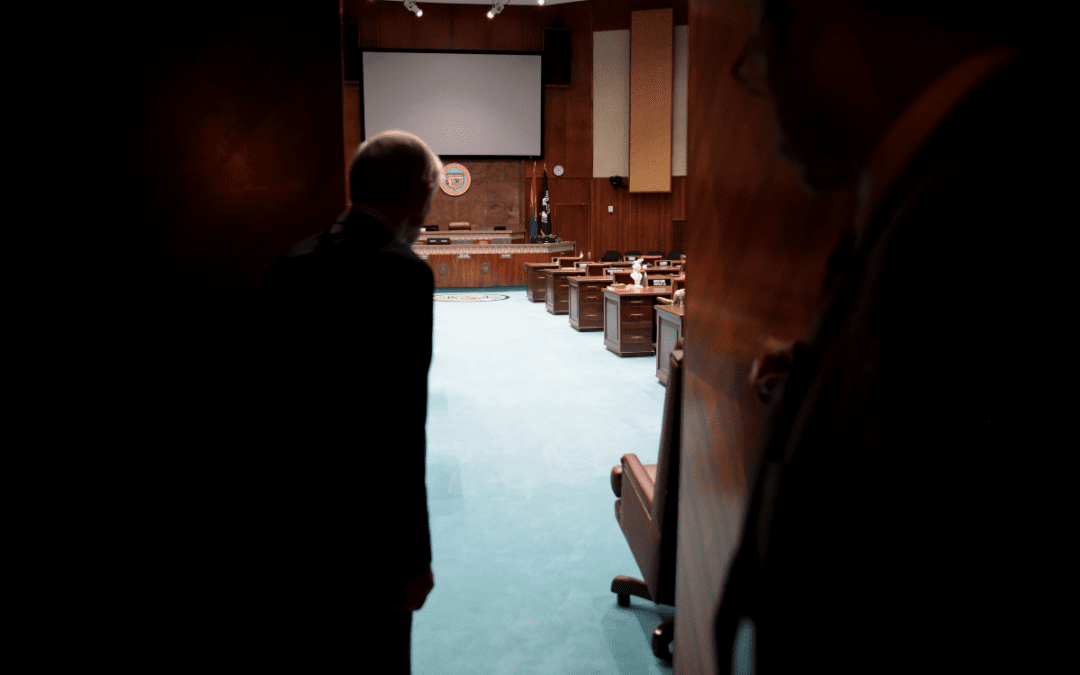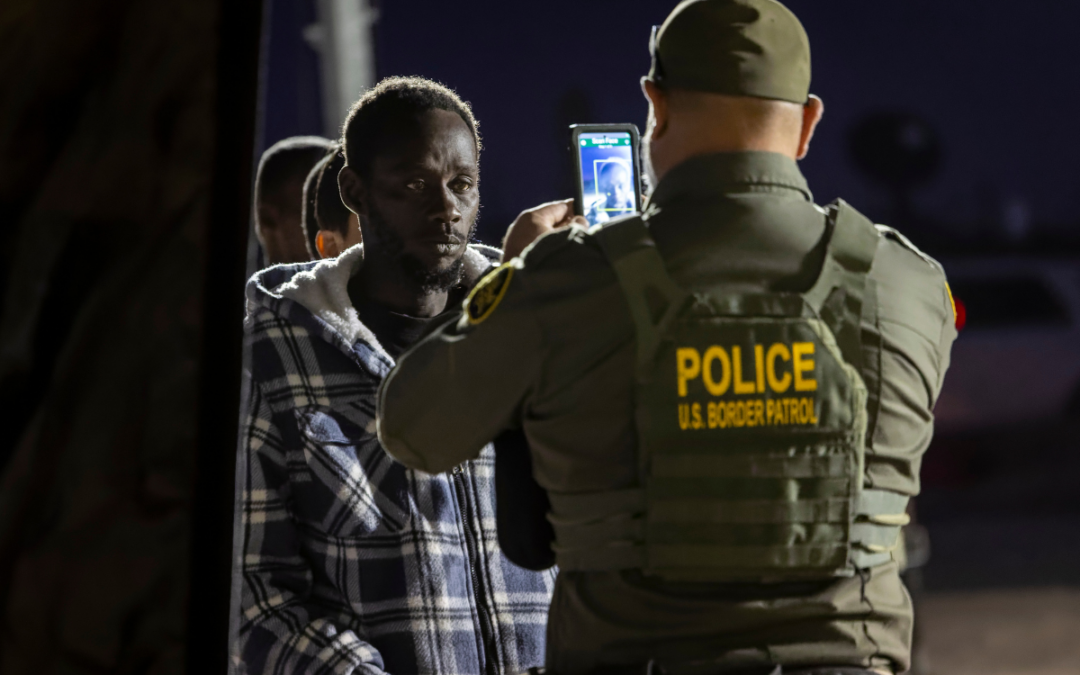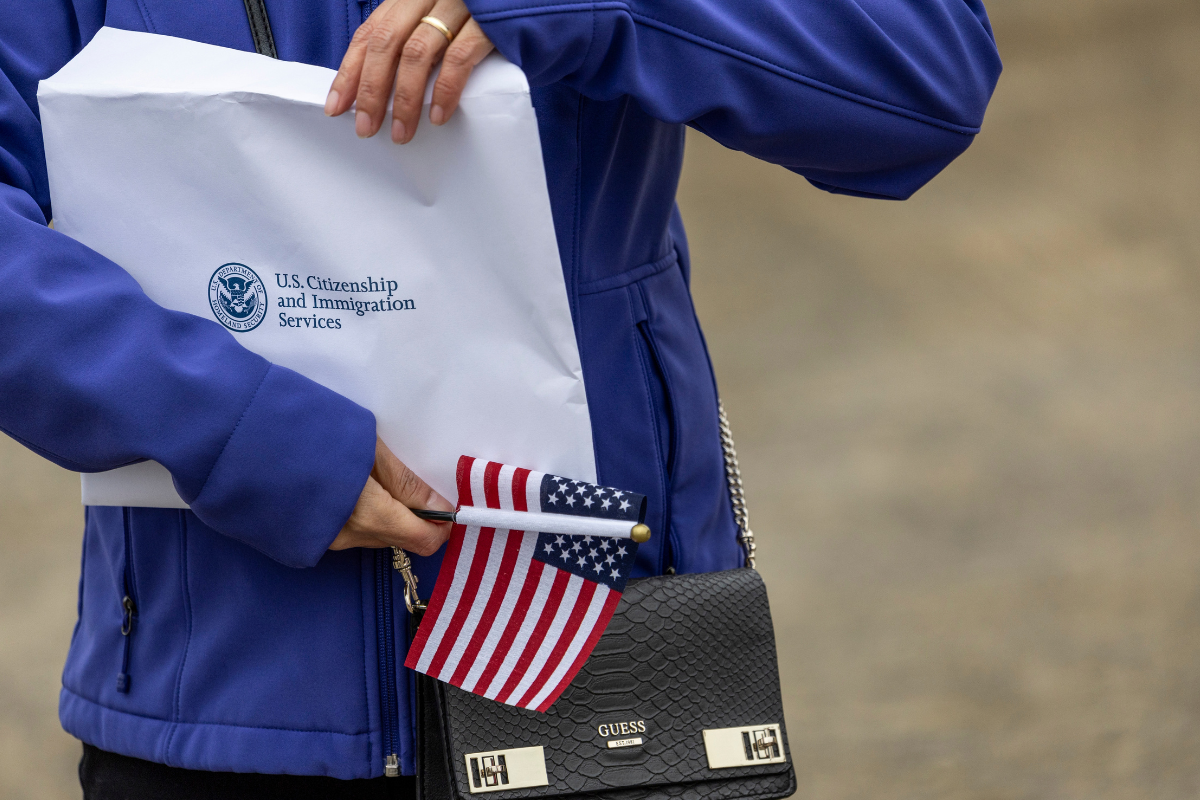
A new American citizen hlds an envelope with her U.S. citizenship certificate following a naturalization ceremony on August 10, 2023. Photo by John Moore/Getty Images
A cohort of labor organizers, immigration lawyers, and their clients gathered at a union hall in central Phoenix on March 30 to help roughly 20 people begin the final leg of their journey to become US citizens.
Dozens of union members filled the International Union of Painters and Allied Trades (IUPAT) Local 86 hall in Phoenix on Saturday, March 30, for the Arizona AFL-CIO’s inaugural citizenship fair, where nearly two dozen applicants worked with immigration lawyers and union volunteers to fill out applications for naturalization. The Painter’s Union is one of over 50 unions that work with the AFL-CIO to build solidarity among workers across industries.
Chatter and laughter filled the union hall as volunteers and applicants worked through their materials, flagging down attorneys for legal advice with color-coded cards. A visual and narrative timeline of labor history in America sprawled across the walls of the hall, stretching from one end to another.
In the center of the room, floating from table to table, was Esau Gutierrez, the Arizona AFL-CIO’s training specialist. Gutierrez — who’s worked for the union for about a year and got his start in labor organizing with the hospitality union UNITE HERE! Local 49 in Sacramento in 2016 — said the citizenship fair has been in the works for roughly three months, and every volunteer was a union member.
Alina Cordoba, the communications director for the AZ AFL-CIO, said the organization aims to continue holding citizenship fairs periodically throughout the year.
Most of the applicants taking part in the event were US residents, Gutierrez said, and the main task of the day was completing naturalization paperwork, known as the N-400. After applicants worked with volunteers on completing their naturalization application, they were instructed to head straight to the post office to mail off their documents.
Submitting the N-400 application over the weekend was important, Gutierrez and others said, because the filing fee would increase by 19% on April 1—the first time the fee had increased since 2016.
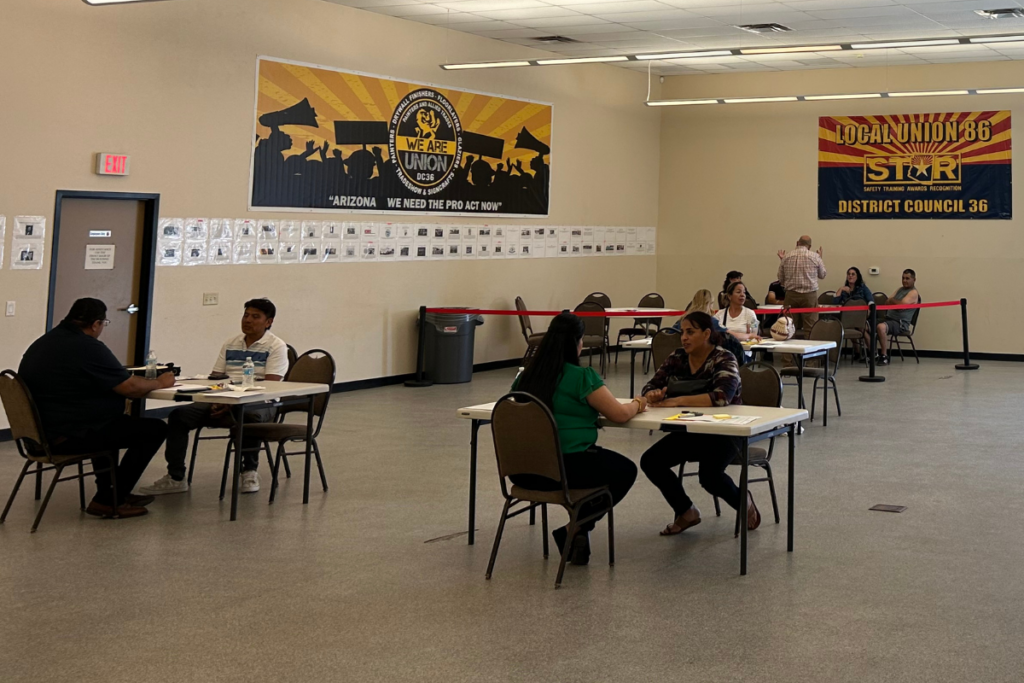
Immigration attorneys helped attendees navigate the process of filling out naturalization paperwork. Photon by Sam Ellefson
Paying for citizenship
The US Citizenship and Immigration Services (USCIS), the government agency tasked with managing naturalization applications, now charges a $760 fee to file one. However, applicants can get a fee reduction if they can provide documentation showing they make less than a certain amount of money per year.
Unlike the majority of federal government agencies, the USCIS gets almost all of its funding from collecting fees. Only 4% of the agency’s funding comes from Congress, according to the agency’s website.
Gutierrez said that a typical applicant will spend about $1,500 throughout the process of becoming a citizen.
Juan Moran, a community relations manager for USCIS who attended the citizenship fair, said the agency doesn’t want to deal with the politics of immigration.
“We come strictly with the applicant in mind,” Moran said. “For a lot of people, it’s less of a headache to be a citizen.”
Citizens can sponsor families to become residents, and children under 18 receive citizenship if one of their parents is approved. Moran said almost all of the applicants at the event were residents who had been sponsored by a family member in the past.
Natalia Polukhtin, founder and principal at Global Practices Group, a firm specializing in immigration law, was volunteering at the event. Polukhtin said that it’s not too complicated to become a citizen through naturalization, as long as the applicant pays taxes and doesn’t have a criminal record. It’s not guaranteed, however; unlike immigration law in other countries, immigration officials can determine the outcome of cases at their discretion.
The right time to naturalize
Raquel Terán, a former state senator who’s running for Congress, was also in attendance at the citizenship fair, chatting with applicants and union leaders. Terán said she’s happy to see the AFL-CIO put on this kind of event during such a pivotal election year and is looking forward to seeing future iterations.
“It’s especially important this year when we have so many things on the ballot,” Terán said. “Abortion, ensuring the Senate is controlled by Democrats — the ability to vote and use your voice is so important.”
Gutierrez said that half of the applicants expressed their desire to acquire the right to vote as a major motivator for becoming a citizen, particularly during an election cycle that’s seen a swath of anti-immigrant candidates gain momentum in their races.
Camilo Patarroyo, a junior designer at a Scottsdale-based architectural firm, took part in the AFL-CIO’s event with his mother. Patarroyo, 23, has been a resident for seven years and was the first applicant to finish filling out his paperwork during the event.
He said he wanted to become a citizen during the previous election cycle so he could vote, and even volunteered for community organizations like Mi Familia Vota and Chicanos Por La Causa in the past to help other immigrants navigate the process of naturalization. He found that many residents wanted to apply for citizenship but feared deportation, a phenomenon he attributed to misinformation.
Patarroyo said the timing didn’t work out for him to be able to vote in 2020, and while he is still eager to become a citizen, voting in November isn’t a major motivator for him applying for citizenship because none of the presidential candidates resonate with him.
With paperwork in hand, Patarroyo headed to the post office to submit his application before the fee hike would go into effect. Even before the increase, this financial barrier has been difficult for some residents, but Patarroyo said his income and job stability give him the ability to pursue this relatively pricey process.
*Correction: A previous version of this story incorrectly named one of the individuals at the event. We regret the error.
Politics
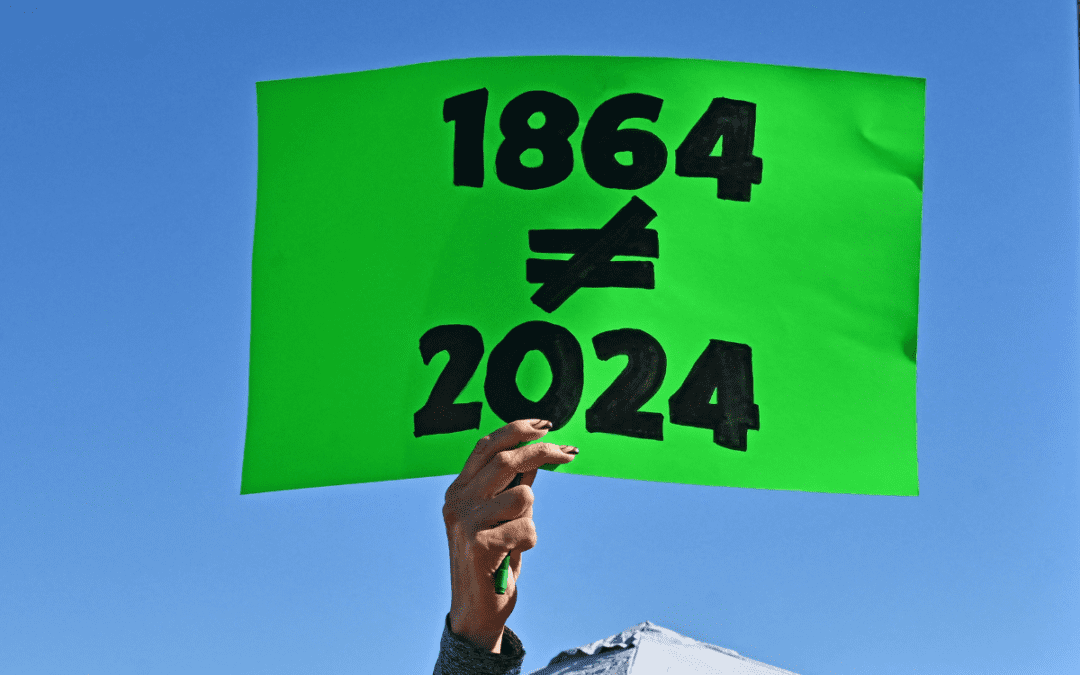
State Official: 1864 abortion ban gives Arizona ‘black eye’
Arizona’s role at the forefront of the climate crisis, defending democratic elections, and protecting reproductive rights has caught the attention...

Biden makes 4 million more workers eligible for overtime pay
The Biden administration announced a new rule Tuesday to expand overtime pay for around 4 million lower-paid salaried employees nationwide. The...
Local News
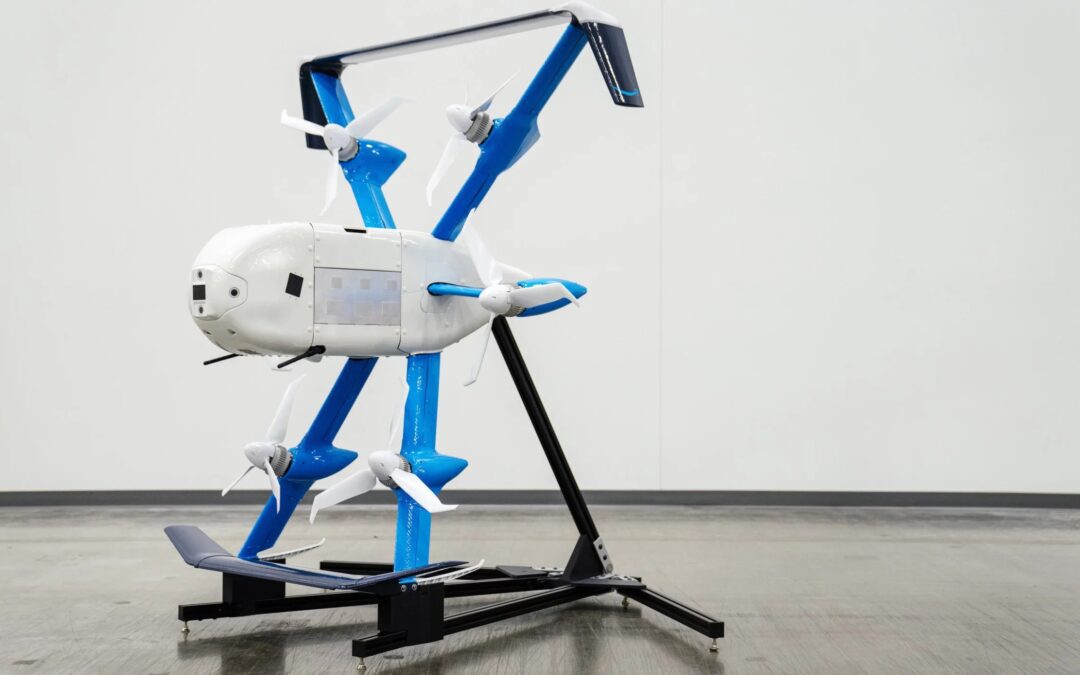
The Amazon drones are coming to Arizona later this year
The drones operate on electricity, while most of Amazon’s fleet of vehicles operate on gasoline. Amazon drone deliveries are coming to the West...

Arizona’s reality TV stars: Where are they now?
From A-list actresses to a controversial bachelor, here's a roundup of reality TV stars from Arizona. Whether you love it or hate it, reality TV is...



